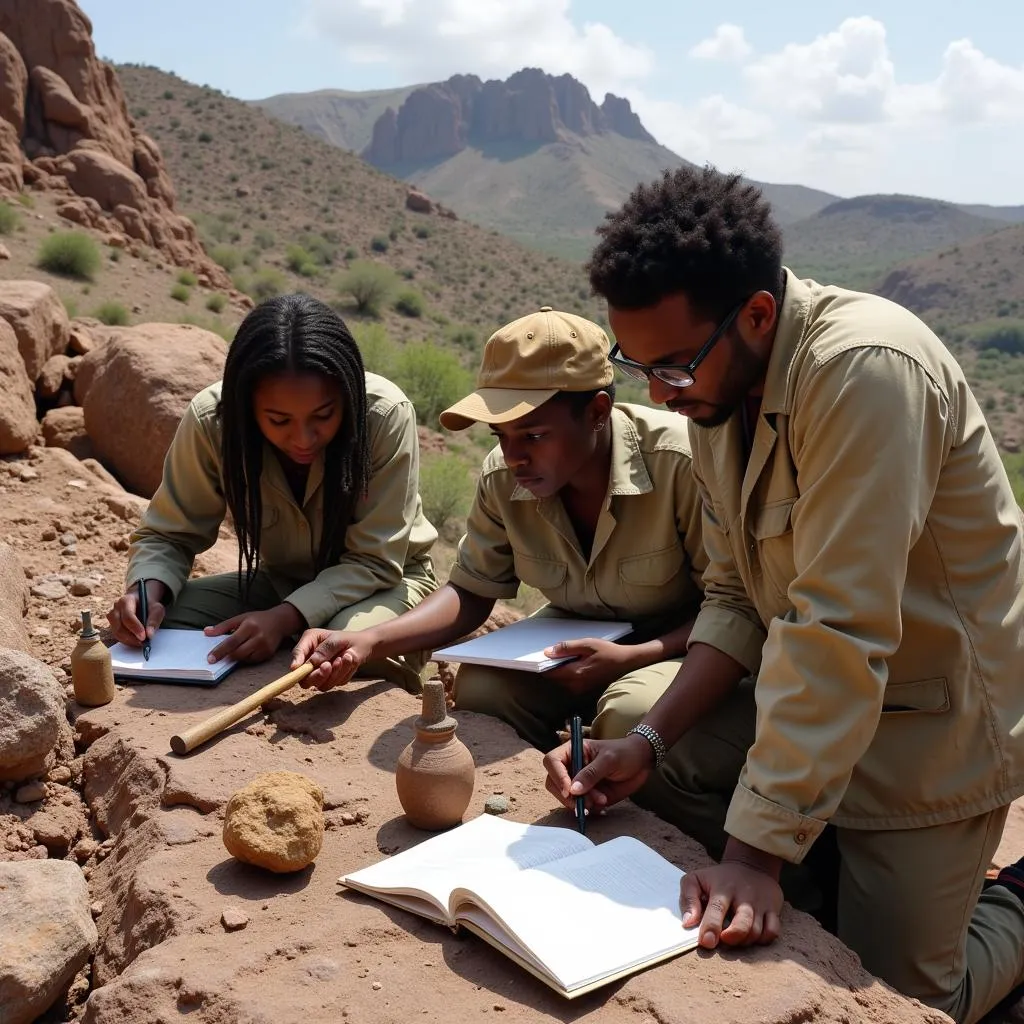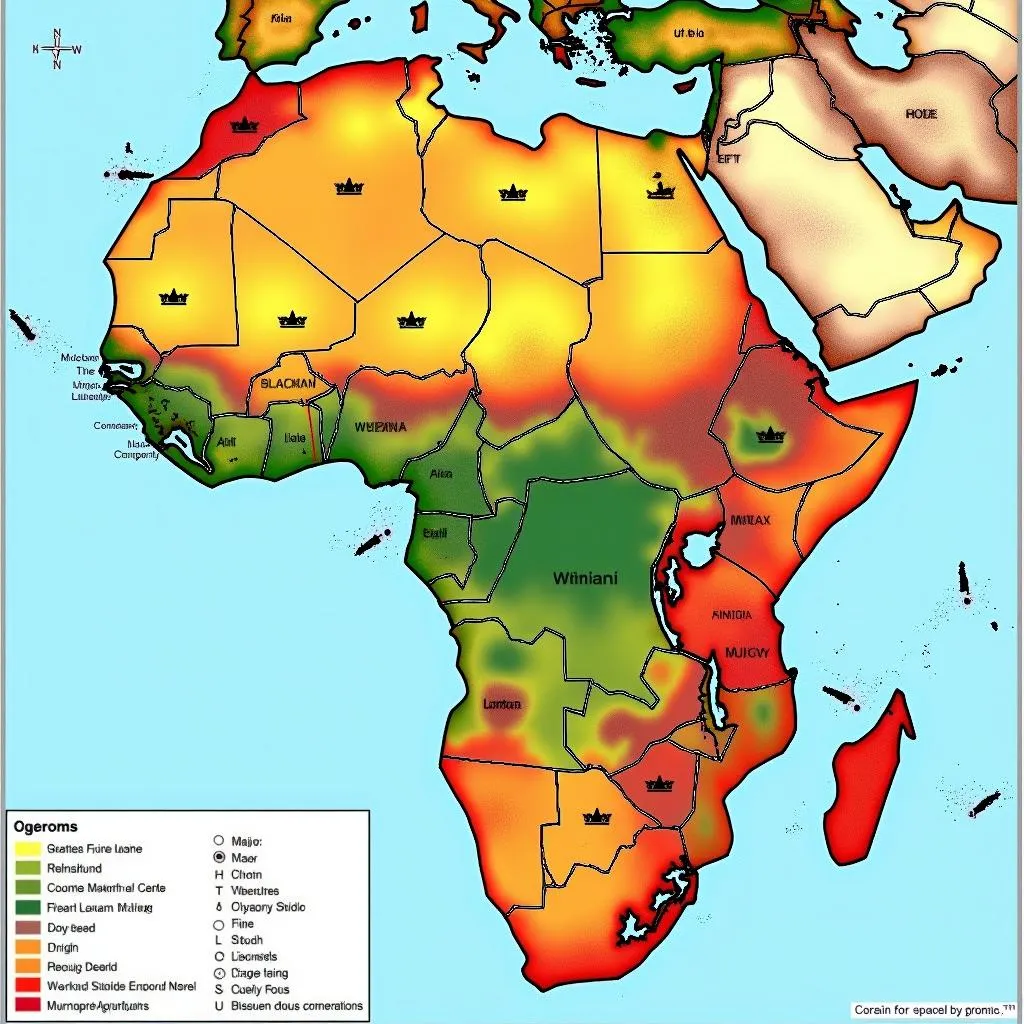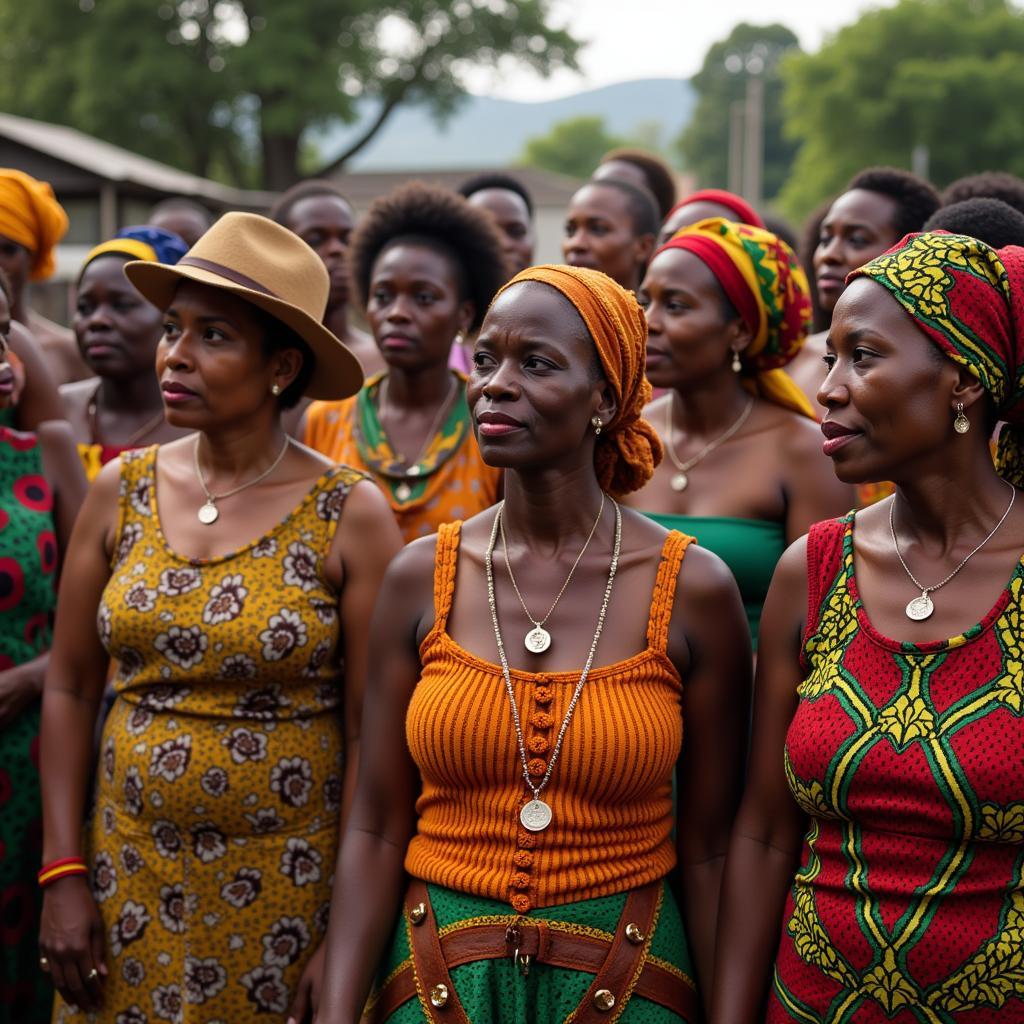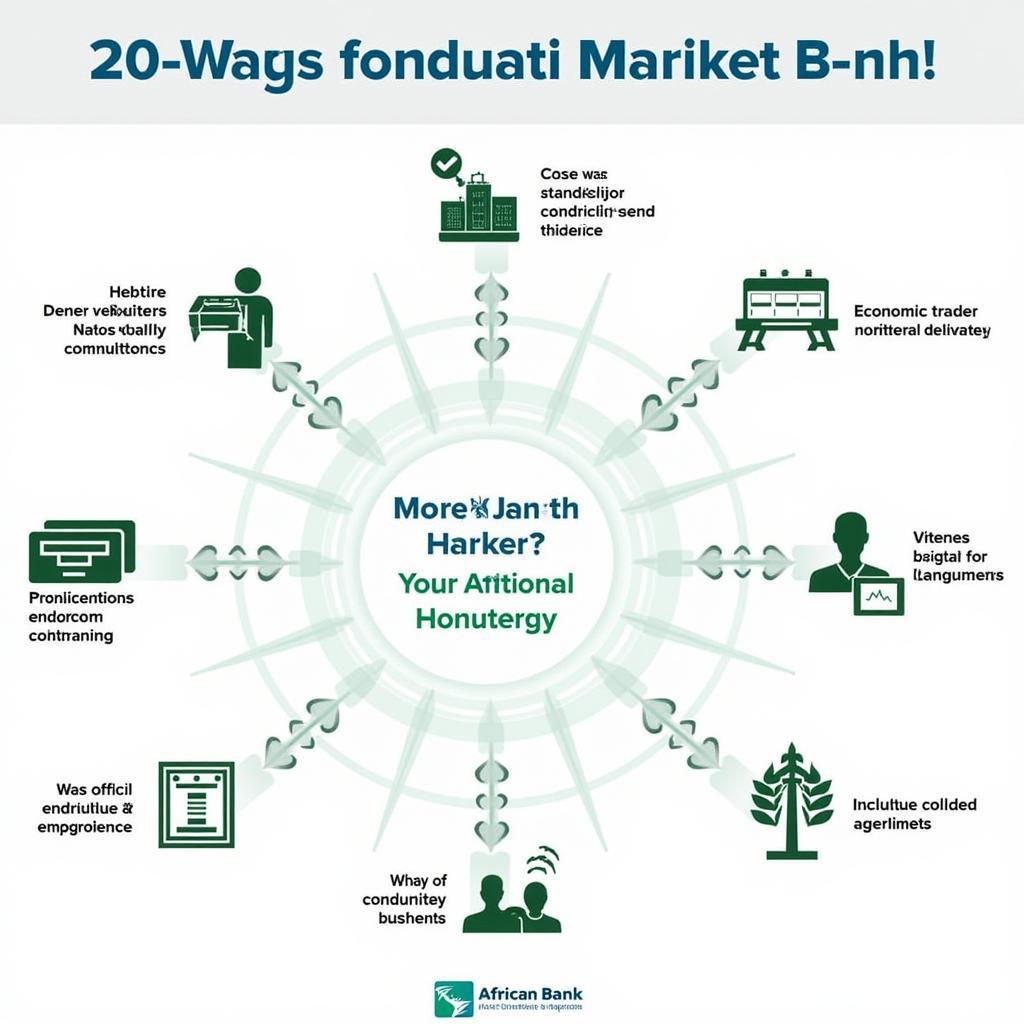Unlocking Earth’s Secrets: Exploring the African Journal of Earth Sciences
The African Journal Of Earth Sciences (AJES) stands as a testament to the continent’s rich geological heritage and the groundbreaking research being conducted by African scientists. This journal serves as a platform for sharing cutting-edge discoveries, promoting collaborative efforts, and advancing our understanding of Earth’s processes, particularly within the African context.
Delving into the Depths: Scope of the AJES
The AJES covers a broad spectrum of Earth science disciplines, reflecting the diverse geological formations and phenomena found across the African continent. Some key areas of focus include:
- Geophysics: Unraveling the Earth’s interior through seismic studies, gravity and magnetic surveys, and other geophysical techniques.
- Mineralogy and Petrology: Investigating the composition, structure, and formation of minerals and rocks, shedding light on Earth’s crust and mantle processes.
- Structural Geology and Tectonics: Examining the deformation and movement of Earth’s crust, analyzing fault lines, folds, and other geological structures that shape the landscape.
- Sedimentology and Stratigraphy: Studying sedimentary rocks and their layers to reconstruct past environments, climates, and the evolution of life on Earth.
- Paleontology: Exploring the fossil record to understand the history of life on Earth, including the evolution of dinosaurs, early hominids, and ancient ecosystems.
 African Earth scientists studying rock formations
African Earth scientists studying rock formations
Bridging the Gap: The Importance of Regional Research
The AJES plays a crucial role in addressing the unique geological challenges and opportunities present in Africa.
- Mineral Resources: Africa possesses vast reserves of valuable minerals, including gold, diamonds, and platinum. The AJES publishes research that contributes to sustainable exploration, extraction, and management of these resources.
- Natural Hazards: Understanding the geological processes behind earthquakes, volcanic eruptions, and landslides is essential for developing effective mitigation strategies and protecting vulnerable communities.
- Water Resources: As water scarcity becomes an increasing concern, research published in the AJES helps assess groundwater resources, manage aquifers, and develop sustainable water solutions.
- Climate Change: By studying past climate records preserved in rocks and sediments, researchers can better understand the long-term impacts of climate change and inform adaptation strategies.
A Platform for Collaboration: AJES and the Global Scientific Community
The African Journal of Earth Sciences fosters collaboration between African researchers and their international counterparts, promoting the exchange of knowledge and expertise.
- International Partnerships: The journal encourages submissions from researchers worldwide, facilitating a global dialogue on Earth science issues relevant to Africa.
- Capacity Building: By providing a platform for African scientists to publish their work, the AJES contributes to building research capacity and strengthening the continent’s scientific community.
- Data Sharing: The journal promotes open access to research findings, enabling wider dissemination of knowledge and facilitating further research and innovation.
 Geological map of Africa highlighting mineral deposits
Geological map of Africa highlighting mineral deposits
The Future of Earth Sciences in Africa
The African Journal of Earth Sciences is poised to play an even more significant role in the years to come, driven by factors such as:
- Technological Advancements: New technologies, such as remote sensing, geospatial analysis, and high-performance computing, are revolutionizing Earth science research, opening up new avenues for exploration and discovery.
- Growing Research Capacity: Investment in education and infrastructure is nurturing a new generation of African Earth scientists who are well-equipped to tackle complex challenges and contribute to global knowledge.
- Increasing Awareness: As the importance of Earth sciences in addressing pressing global issues becomes increasingly recognized, the AJES will continue to serve as a vital platform for sharing African perspectives and solutions.
Conclusion
The African Journal of Earth Sciences plays a pivotal role in advancing our understanding of the Earth’s geological processes, particularly within the African context. By providing a platform for high-quality research, fostering collaboration, and promoting open access to knowledge, the AJES contributes significantly to the global Earth science community. As Africa continues to face challenges and opportunities related to its rich geological heritage, the journal will undoubtedly remain at the forefront of scientific exploration and discovery.
FAQ
1. What types of articles does the African Journal of Earth Sciences publish?
The journal publishes original research articles, review articles, technical notes, and book reviews related to various aspects of Earth sciences.
2. Who can submit articles to the AJES?
The journal welcomes submissions from researchers, academics, and professionals working in the field of Earth sciences, regardless of their geographical location.
3. Is the AJES a peer-reviewed journal?
Yes, all submissions undergo a rigorous peer-review process to ensure the quality and scientific rigor of published research.
4. Is there a publication fee for the AJES?
The publication fee policy varies, and authors are encouraged to check the journal’s website for the most up-to-date information.
5. How can I access articles published in the AJES?
The journal offers both subscription-based access and open access options for its articles.
For support contact Phone Number: +255768904061, Email: kaka.mag@gmail.com Or visit: Mbarali DC Mawindi, Kangaga, Tanzania. We have a 24/7 customer support team.


